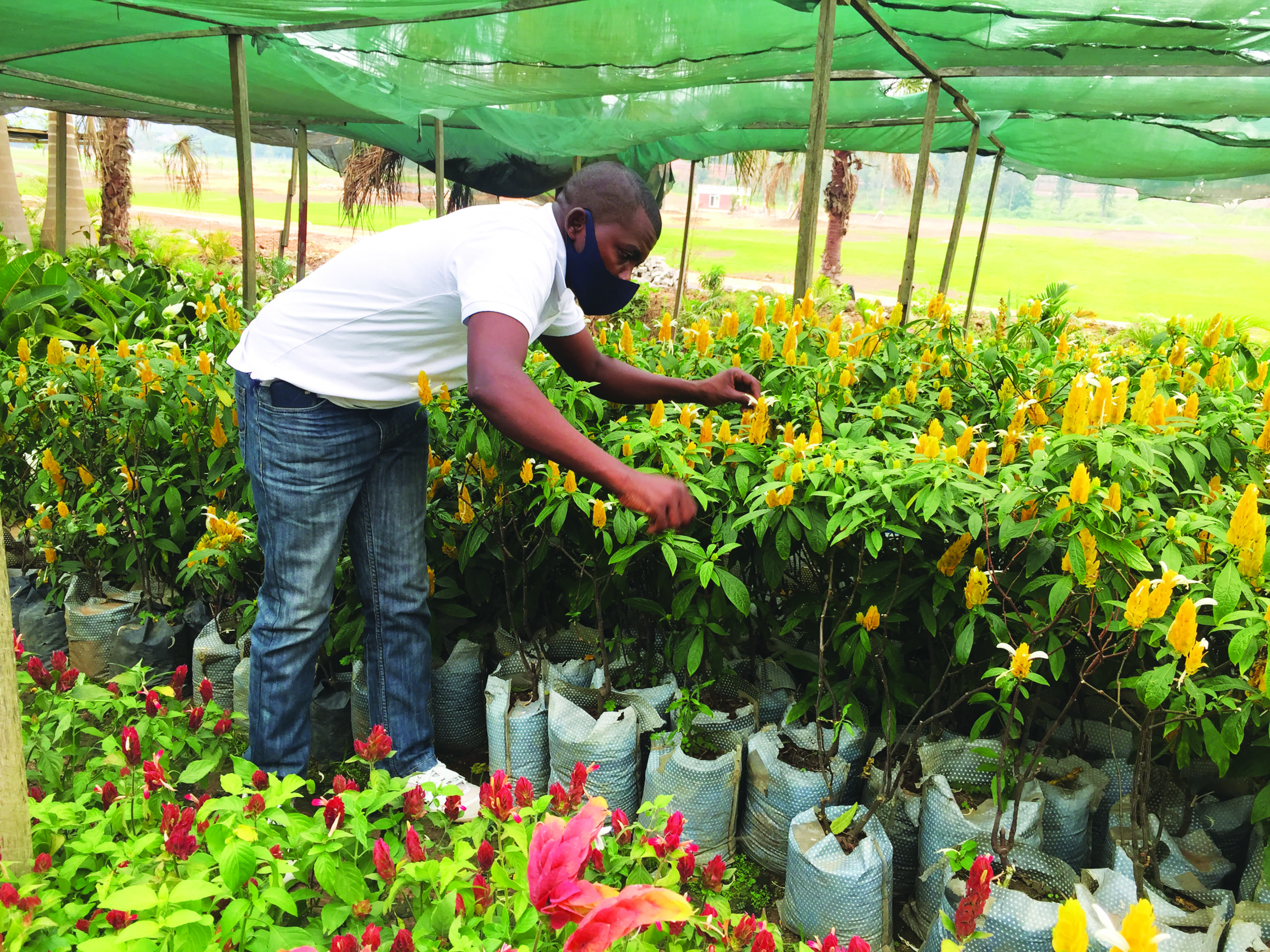Rwanda is renowned for its green and immaculate public spaces. And 35-year-old Viateur Ndahayo is a flower farmer playing his part, beautifying the city of Kigali with his ornamental flora.
At Gacuriro, a leafy neighborhood in Kigali, dressed in a white shirt and blue jeans, Ndahayo shows us around his RWF250 million ($255,000) nursery. He has come a long way to be in this prized spot.

After primary school, he could not pursue his secondary education due to limited means. As a firstborn, he had to help his widowed mother bring up his siblings.
“I was competent and excelled in my studies but my mother’s land was too small to finance our education,” he recalls.
With a heavy heart, Ndahayo made the decision to drop out of school and concentrate on growing flowers. Little did he know he was sowing the seeds for a successful future.
“I grew flowers as an experiment because it was not a common activity here. Only one Belgian company used to do it,” he says. Ndahayo explains that when the Belgians flew back home from Rwanda, the people who took over their business weren’t doing it properly.
“I had never seen colored plants before as I was used to green ones. They caught my attention and made me very inquisitive.
“I didn’t envisage a profitable business growing flowers, I was just driven by passion.”
He had no formal training but started selling in 2000. “I realized I can make a living from this and even employ others if I put in more effort.”
But he needed land, seeds and equipment.
“I knew the project would succeed but had no money to finance it. So I approached a friend of mine who had three goats. I pitched my project to him and convinced him to sell them.”

“They paid us RWF21,000 ($21) but my friend changed his mind after a while because he saw no immediate profit,” recounts Ndahayo. He returned the capital three months later. “What pleases me is that afterwards, he realized I had not lied. I taught him the business and he’s doing well.”
Ndahayo lived on the outskirts in Nduba and had to travel to Kigali to sell his products. “I had to package up to 10 flower vases in a carton and carry them on my head because I had no transport. I would receive RWF1,000 ($1) to RWF3,000 ($3) for each.”
Slowly, he established connections and made a name for himself. It required courage and patience.
“At times, I felt hesitant about what I was doing and my colleagues thought I was crazy. But the passion I had kept me going,” he says. He conducted his own research and consulted others, thereby developing expertise in the trade over time.
“I made mistakes but drew lessons from them. It cost me a lot but benefitted me in the end.”
In 2008, he set up his nursery. It was the year he started reaping the fruits of his labor.
Today, he boasts nurseries with up to 270 types of flowers and plants such as Hemerocallis, Agapanthus blue, Roystonea palm and Ixora red, to name a few. He’s become a go-to flower grower in Kigali.
“If you can’t find a given flower here, don’t expect to find it anywhere else,” one of Ndahayo’s customers tells FORBES AFRICA.
Ndahayo claims to have mentored most of Kigali’s flower farmers.
While his profits vary depending on seasons and other aspects, he says he makes a minimum of $1,000 a month. If he wins a bid to supply flowers, that could go up a staggering 50 times.
He says the fact that Rwanda is a country that cares about cleanliness and the environment has been an enabling factor for his business. Nonetheless, he believes more support could be provided to those in flower farming.
“For example, you can’t go to a bank and secure a loan for this business. They’ll tell you we don’t trust it. But I’m telling you, it’s profitable although it’s a long-term investment,” he asserts.
Married with two children, Ndahayo lives in his own house. “I’m glad that I’m one of the people in this country who can add a brick on another,” he laughs.
Ndahayo employs more than 10 people on a permanent basis. He is hoping to expand his business by venturing into green house agriculture and has now formed a company called Green Smart Farm.
And his advice for young aspiring entrepreneurs?
He mentions the Kinyarwanda proverb ntiwakama inka utaragiye, which loosely translates to “you can’t milk a cow you’ve not fed”. He explains that genuine success takes ambition, hard work and patience.
“Life is a battle and you must commit to win.”
By Steven Muvunyi
